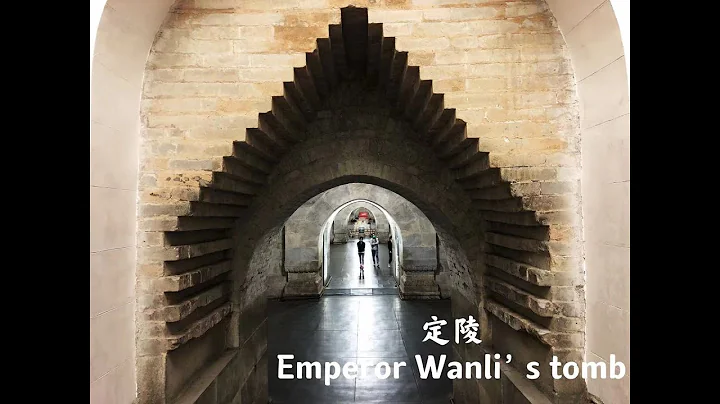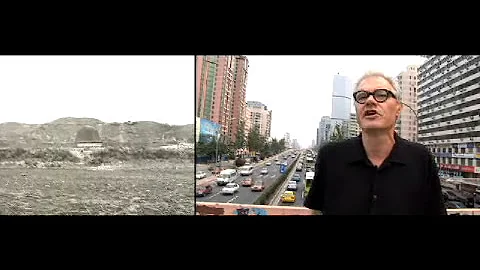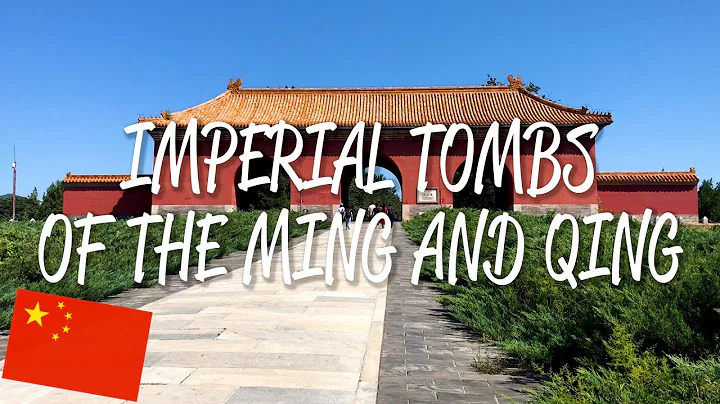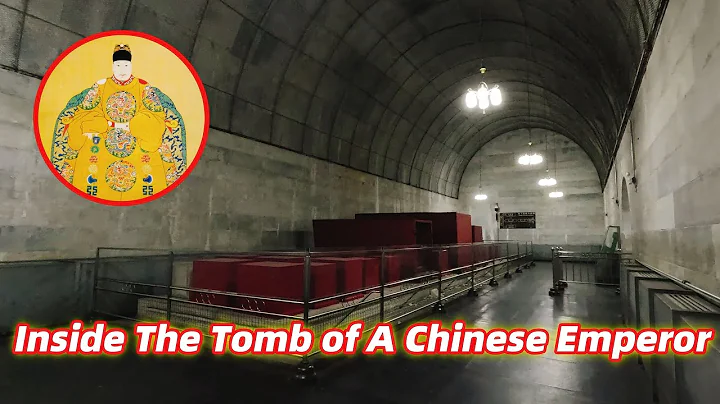
As soon as the words "Master Qingtian" are mentioned, people will unconsciously think of " Bao Gong" - Bao Zheng of the Song Dynasty.
Whether it is in historical records, or in various literary books or film and television dramas, I believe that no one will not know the name of Bao Zheng, because he is selfless, honest and fair, and delivers justice for the people. Therefore, people regard Bao Zheng as the embodiment of justice.
What is strange is that on the day of Bao Zheng's funeral, 21 coffins were carried out from the city gate at the same time. After that, even tomb robber set a rare rule.
It is precisely because of this rule that Bao Zheng’s cemetery is still well preserved. So, what exactly is this rule?

Why do people call him " Bao Qingtian "
Song Zhenzong Bao Zheng was born in the second year of Xianping, and his father served as a member of the Ministry of Yu at that time.
It can also be seen from this that Bao Zheng's background is not low. Under his father's strict discipline, Bao Zheng developed a strict self-discipline from an early age.
Song Renzong In the fifth year of Tiansheng's reign, 28-year-old Bao Zheng passed the Jinshi examination. Under the arrangement of the imperial court, Bao Zheng originally had to serve as the magistrate of Jianchang County, but as a filial piety, he wanted to take care of his elderly parents.
In the end, Bao Zheng took up the position of tax supervisor in Hezhou, not far from his home.
Baishan filial piety comes first. Compared with taking care of his parents, Bao Zheng at that time did not care so much about his official position.
Thinking that his parents were old, Bao Zheng resigned from his official position and devoted himself to serving his parents at home.
Even after his parents passed away, during the period of mourning and filial piety, Bao Zheng actually built a thatched cottage next to the cemetery, which is a lesson to his filial piety.

It was not until 1037 that Bao Zheng accepted the imperial appointment again and became the magistrate of Tianchang County.
Bao Zheng encountered a difficult case not long after he took office. At that time, a farmer took beef tongue to report the crime, claiming that his cattle had been cut off by gangsters, hoping that the government would arrest the gangsters.
After hearing this, Bao Zheng thought for a moment and immediately thought of a good way to lure the snake out of its hole. He first asked the farmers to kill their cattle for trading, and then waited in the government office for the gangsters to fall into the trap.
As expected, it didn't take long for a person to report the crime, saying that someone had slaughtered the cattle. When Bao Zheng heard this, he immediately took the man into custody.
It turns out that in the Song Dynasty, it was illegal to slaughter cattle, so the gangsters who cut off the tongues of cattle saw farmers slaughtering cattle and planned to file a complaint first, which exposed their flaws.
After Bao Zheng solved the case in this ingenious way, he began to win the favor of the local people.

Upright and upright Lord Bao
At that time, Bao Zheng was not only able to judge cases skillfully, but also did not care about intimacy during the law enforcement process and was upright.
After Bao Zheng became an official, some of his relatives and friends began to use his power to do evil, and even did many things that harmed the people.
When Bao Zheng learned about this, he began to exterminate his relatives righteously. He beat his uncle who had committed the crime in public in court, which shocked everyone.
Bao Zheng's actions made those relatives and friends no longer dare to act recklessly. At the same time, his reputation also began to spread far and wide.
Later, Bao Zheng was appointed as Khitan Zhengdan envoy to Liao Dynasty . After getting to know the Liao people in detail, he proposed to the imperial court suggestions for selecting generals to strengthen border defense.
It can be seen from this incident that Bao Zheng is not only a good official who does practical things for the people, but also a loyal minister who devotes himself to the country.

In the Song Dynasty, if people wanted to report a crime to the government, they had to hand in the complaint paper one level at a time, and the most important person among them was the government official.
Government officials will take advantage of the opportunity to engage in malpractice and extort money from the people. If the people do not give enough money, then the complaint paper will not reach the hands of the county magistrate. In this way, there will be more and more unjust, false and wrong cases, and public complaints will arise.
When Bao Zheng learned about this situation, as long as it was a government office where he had served, he would remove government officials and let the people submit complaints directly to the court.
In this way, those government officials will no longer be able to use their official positions to extort money, and unjust, false and wrong cases will be resolved promptly.
Compared with the cumbersome trial process in the past, Bao Zheng's approach became fair and open, protecting the interests of the people to the greatest extent.

Over time, everyone knew about Bao Zheng’s selflessness. When he was waiting to be appointed as the governor of Tianzhang Pavilion, the royal relatives and dignitaries in Tokyo were very afraid and did not dare to take bribes and bend the law again.
Because Bao Zheng did something that frightened them, which was to impeach the powerful.
You must know that the powerful people at that time were very powerful, and no one dared to publicly impeach for fear of getting into trouble.
But Bao Zheng has never been afraid of these. His official code is to strictly enforce the law and not show favoritism.
Although Bao Zheng later reached a high position, his food, clothing, housing and transportation were no different from those of ordinary people, making him truly comfortable.

The rules set by the tomb robbers
Whether it is historical records or folklore, the stories of Bao Gong's judgment are popular among people, including the well-known civet cat for the prince, the guillotine case, etc.
To this day, these stories are still passed down by word of mouth. The image of Bao Gong is also fresh in people's minds, because he has a crescent-shaped birthmark on his forehead and has dark skin. This image is very consistent with his selfless character.
On July 3, 1062 AD, Bao Zheng, who was seriously ill, passed away at the age of 60.
From being admitted as a Jinshi at the age of 28 to entering the officialdom, in Bao Zheng's life, he vividly displayed the two roles of loyal minister and upright official, which is worthy of being recorded in history.
When the news of Bao Zheng's death came out, the people cried when they heard it, and even Song Renzong at the time personally buried him.
On the day of Bao Zheng's funeral, the air was filled with sadness. People came to see him off spontaneously in an endless stream, and the scene was very spectacular.

While the people were immersed in grief, they were shocked by the scene in front of them. There were actually 21 coffins carried out from the city gate at the same time.
Among these 21 coffins, only one is real, and the rest are just to disturb people's eyes.
Bao Zheng, who has always been frugal, did this because he offended many powerful people during his lifetime. In order to prevent his tomb from being damaged, he had no choice but to do so.
The ancients paid special attention to the four words "lay in peace". Most celebrities would use this method to hide their real tombs, such as Cao Cao who once set up 72 suspicious tombs.

In fact, Bao Zheng did not have to do this at all, because his reputation during his lifetime was enough to protect his tomb from being destroyed. After all, he was a god-like existence in the hearts of the people.
After Bao Zheng's death, tomb robbers set a rule from then on, that is, they must bypass Bao Zheng's tomb and never dig it.
Even tomb robbers have set such rules, let alone others.
In addition, later generations respected Bao Zheng very much. In some folklore, Bao Zheng became the King of Hell after his death, responsible for controlling those who committed heinous crimes during his lifetime.
This legend further deified Bao Zheng's image, so no one dared to destroy his tomb.
Today, Bao Zheng’s tomb has also become a protected park, named Princess Bao Xiaosu Cemetery, for future generations to admire.
![[ENG SUB]"Who would still be willing to be a prince after traveling through time"Published - DayDayNews](https://i.ytimg.com/vi/-VPbT5w2Eqc/hq720.jpg?sqp=-oaymwEcCNAFEJQDSFXyq4qpAw4IARUAAIhCGAFwAcABBg==&rs=AOn4CLCGnRAqRIHcGU-CEFaf6Rki1ZQRJg)
![[ENG SUB]"Who would still be willing to be a prince after traveling through time"Published - DayDayNews](https://cdn-dd.daydaynews.cc/img/play.svg)



















